How Dystopian Art Became Utopian Advertising
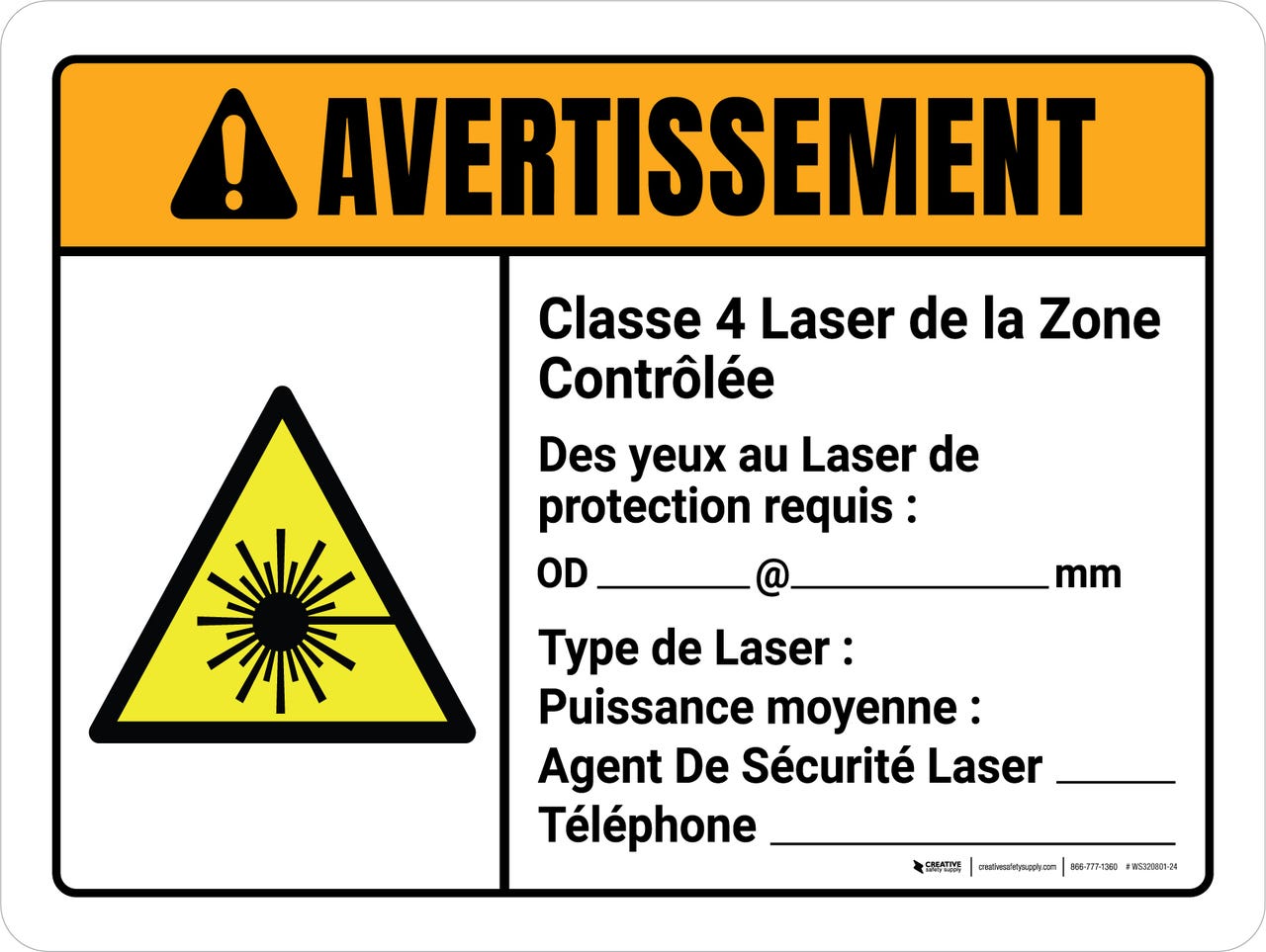
Today people look forward to a Blade Runner future, eat Soylent, and dream of a coming Metaverse. If you’ve read or watched any of the media they’re referencing, it’s shocking. Those stories were all dystopias. They were all warnings that people have taken literally, as avertissements. As advertising.
Dystopias have become utopias now.
Blade Runner
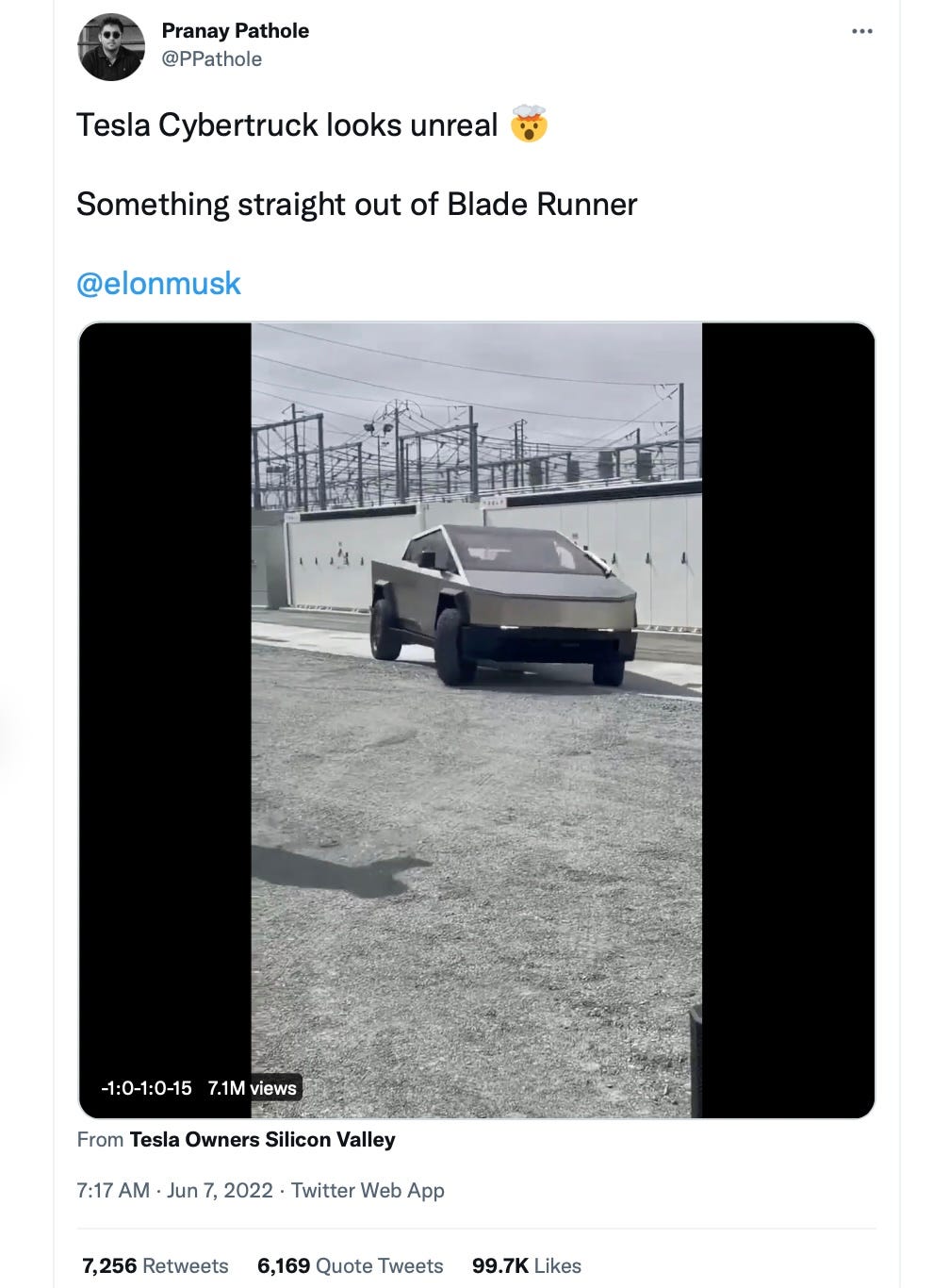
Par example, dude went viral saying “Tesla Cybertruck looks unreal . Something straight out of Blade Runner.” Blade Runner, of course, is the story of a future where most life has gone extinct, the rich have left the Earth, and automated robot slaves do much of the work and violence. This is honestly what Elon Musk is building towards, but not in a good way. This vision of the future is fucked.
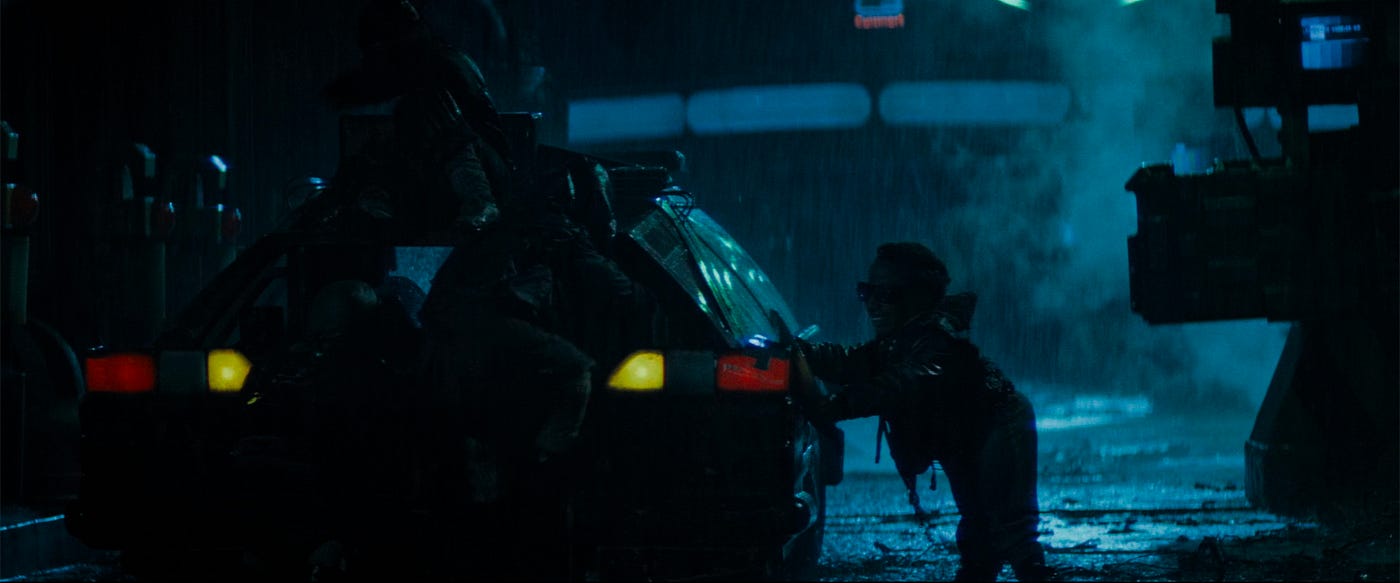
Blade Runner looked cool, but Deckard and everyone in it was constantly wet and miserable. Life was mostly dead or dying. You never saw green or the sun. But they had cool cars. That’s all we took away from that dystopian warning. A fucking advertisement.
Soylent Green
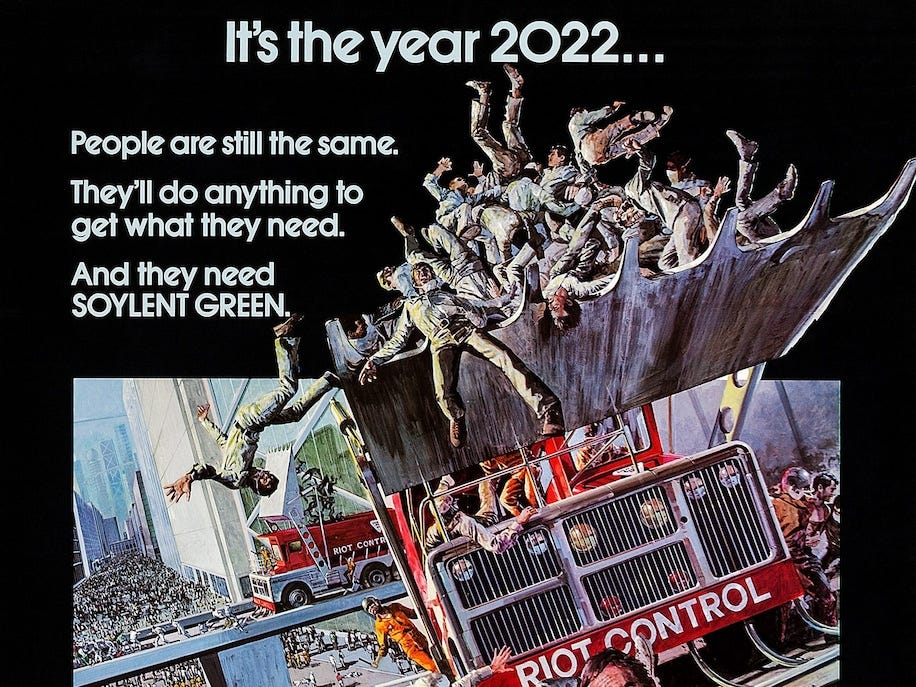
Soylent Green is another ecological dystopia that has now become marketing. Set in our year, 2022, there are global food shortages (except for the rich) and the poor subsist on a diet of unpalatable plankton wafers. Then a new, meatier product appears, called Soylent Green. What’s in Soylent Green? Why the special ingredient is human. Human meat harvested from dead people and convicts. Which is, you know, gross.
And yet somehow in our actual timeline, there is an actual product called Soylent, that people happily eat. It’s like opening a Conga Line class called ‘Human Centipede’, which will presumably be the new Zumba in 2032.
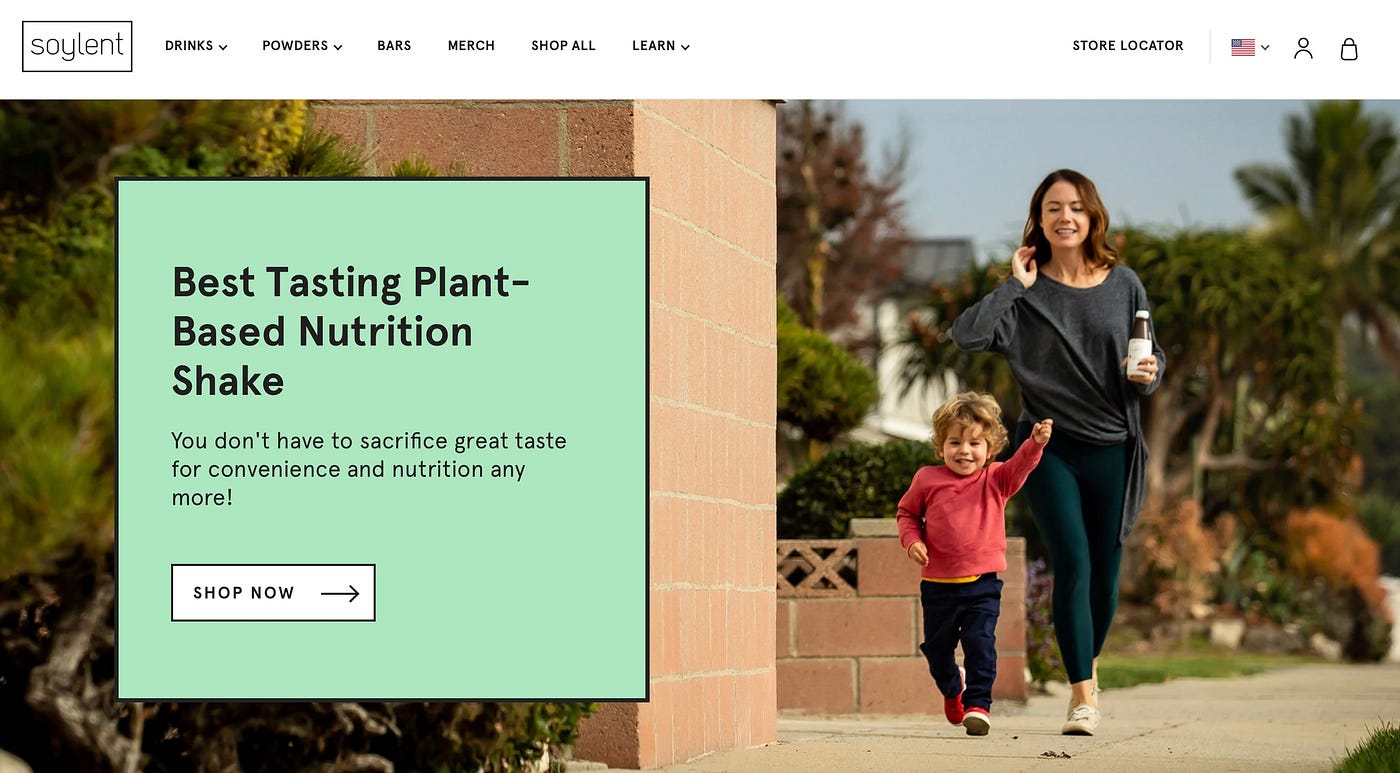
In all of these cases, we get a dire warning about ecological collapse, and the only takeaway is branding. New ways to sell products, while the planet literally dies of consumption.
The Metaverse
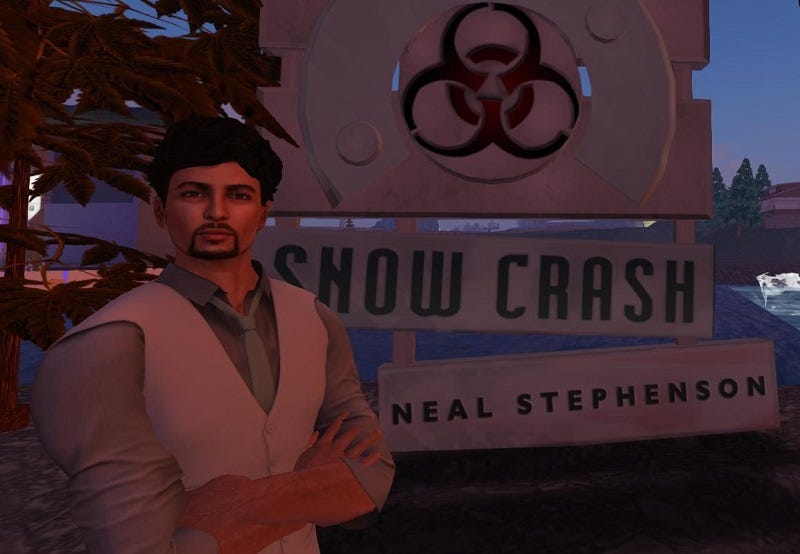
In Neal Stephenson’s Snow Crash, civilization has mostly collapsed into corporate, mafia, or gated-community enclaves and people distract themselves with an also unequal Metaverse. Rather than avoiding that dystopian future, people are now working on the distraction. It’s perverse.
Mark Zuckerberg’s Metaverse is mostly a dead end for Facebook, but there’s still a lot of capital and energy going into it, along with NFTs somehow fitting in there to make stuff unequal. All people took from that story about things going terribly wrong was—as always—cool gadgets. Even in a book, where you can’t even see anything, the advertising effect is strong. You forget the story after a while, but you remember the stuff.
The Fuck
I remember looking at the French word avertissement on seat belts and wondering, ‘how is that the same word as advertising?’ but I totally get it now. I used to wonder how the people in dystopian stories got there, but I get that now as well. They misread warnings as ads, and gleefully bought they own destruction.
Those people are us.